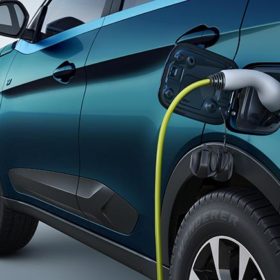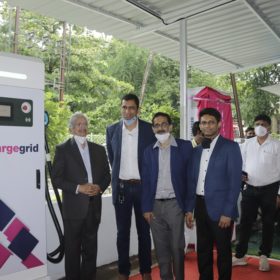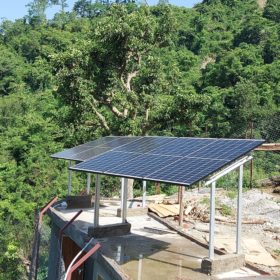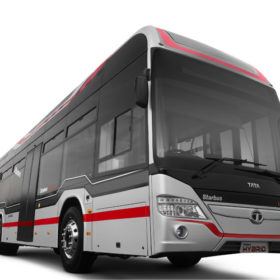German start-up offers 5.2 kWh AC battery that works without inverter
Sax Power has developed a new residential battery which it describes as a game-changer in the battery technology.
India’s first solar microgrid with MW-scale hybrid energy storage
Indian manufacturer Vision Mechatronics has deployed a lithium-lead-acid hybrid battery storage system coupled with a rooftop solar plant at Om Shanti Retreat Centre (ORC) in the State of Haryana. The 1MWh storage system uses a combination of 614.4 kWh Lithium batteries with a 480kWh tubular-gel lead-acid battery.
New residential lithium-ion battery from Germany
The battery system, which is aimed at increased self-consumption, can handle a maximum DC input power of 18 kW and 1000 V.
Tata Power to set up EV charging stations at HPCL petrol pump stations
Tata Power owns an expansive network of over 500 public electric vehicle chargers in 100+ cities across India. Partnering with HPCL allows it to further expand its base in line with the Indian government’s National Electric Mobility Mission Plan to promote electric mobility.
Sonnen battery still running after 28,000 full charge cycles
Sonnen has published test results indicating the longevity of its storage systems after extended use.
Portable hydrogen fuel cell generator with power output of 400 W
The generator can be combined with batteries, solar panels, or small wind turbines. It is based on a proton exchange membrane fuel cell technology and is claimed to have a minimum lifetime of 5,000 working hours.
Magenta opens India’s largest public EV charging station
The Magenta electric vehicle charging station in Mumbai has 21 AC/DC chargers, including four DC chargers of 15-50 kW capacity and 17 AC chargers of 3.5-7.5 kW capacity.
Solar-plus-storage at a hilltop ashram
Loom Solar has installed a solar plus storage system at a small ashram in the hills of Tehri Garhwal, Uttarakhand. The system comprises 6x440W Shark Super high-efficiency PV panels, a 5kWh (100Ah/51.2V) Atom lithium battery, and a 5kVA high-frequency design (string) inverter.
Ballard lands fuel cell order for Tata Motors’ hydrogen buses
The Canadian clean energy solutions provider will supply its fuel cell modules for use in Tata Motors’ 15 hydrogen-powered buses. The buses are planned for deployment in Faridabad, in the National Capital Region of Delhi.
Transforming lives through solar mini-grids
Smart Power India (SPI), a subsidiary of US-based impact investor Rockefeller Foundation, has supported the setting up of more than 300 renewable energy mini-grids cumulating to 9.2 MW of capacity across Bihar, Uttar Pradesh, and Jharkhand, the largest such cluster in India. Jaideep Mukherjee, chief executive officer at SPI, spoke to pv magazine about the role of mini-grids in rural upliftment and the barriers to overcome.















